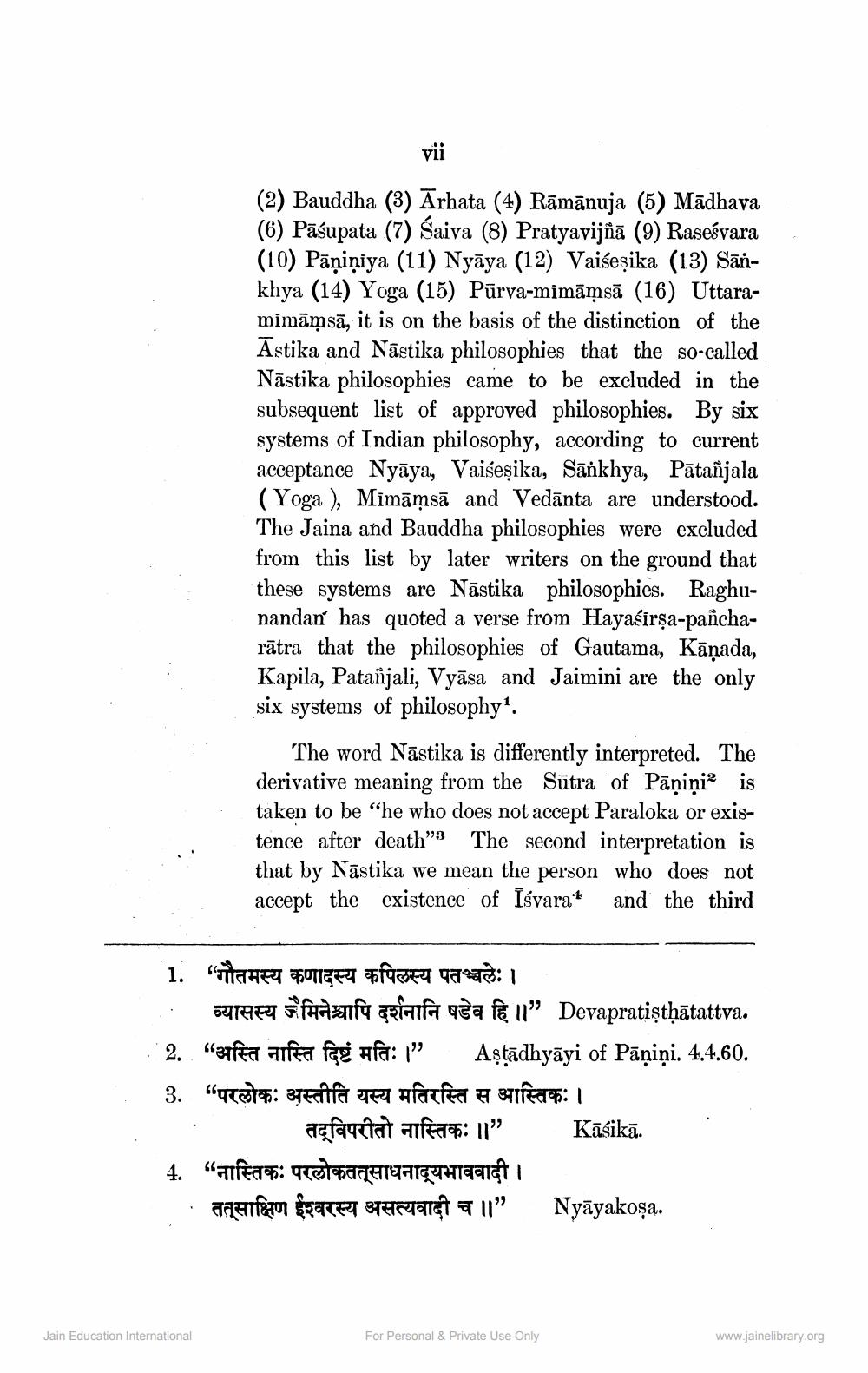________________
vii
(2) Bauddha (3) Arhata (4) Rāmānuja (5) Madhava (6) Pasupata (7) Śaiva (8) Pratyavijñā (9) Raseśvara (10) Pāniņiya (11) Nyāya (12) Vaiseṣika (13) Sankhya (14) Yoga (15) Pūrva-mimāmsā (16) Uttaramimamsa, it is on the basis of the distinction of the Astika and Nastika philosophies that the so-called Nastika philosophies came to be excluded in the subsequent list of approved philosophies. By six systems of Indian philosophy, according to current acceptance Nyaya, Vaiseṣika, Sankhya, Pātañjala (Yoga), Mimamsa and Vedanta are understood. The Jaina and Bauddha philosophies were excluded from this list by later writers on the ground that these systems are Nastika philosophies. Raghunandan has quoted a verse from Hayasirṣa-pañcharatra that the philosophies of Gautama, Kāṇada, Kapila, Patanjali, Vyasa and Jaimini are the only six systems of philosophy1.
The word Nastika is differently interpreted. The derivative meaning from the Sutra of Pāņiņi is taken to be "he who does not accept Paraloka or existence after death" The second interpretation is that by Nastika we mean the person who does not accept the existence of Isvara1 and the third
1. "गौतमस्य कणादस्य कपिलस्य पतञ्चलेः ।
व्यासस्य जैमिनेश्चापि दर्शनानि षडेव हि ॥” Devapratisthatattva. 2. "afea arfta fąg #fa: 1" Aṣṭadhyayi of Pāniņi. 4.4.60.
3. "परलोकः अस्तीति यस्य मतिरस्ति स आस्तिकः ।
agfauriat arftas: 11”
Jain Education International
4. “ नास्तिकः परलोकतत्साधनाद्यभाववादी । तत्साक्षिण ईश्वरस्य असत्यवादी च || "
For Personal & Private Use Only
Kāśikā.
Nyāyakosa.
www.jainelibrary.org




